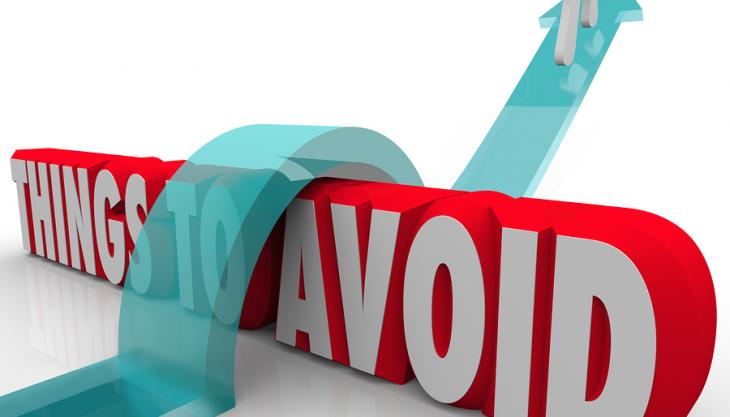5 Actions to Avoid Prior to Filing Bankruptcy
Submitted by Rachel R on Wed, 02/19/2014 - 8:43am

5 actions to avoid prior to filing bankruptcy
Covered up in debts? Feel like you're drowning in collections calls? Are you stressed and not sure how you can extricate yourself from your financial difficulties? If you're considering filing bankruptcy as an option in the foreseeable future, there are some actions you should definitely avoid so that a potential Chapter 7 or Chapter 13 bankruptcy petition isn't put at risk and neither is your financial well-being. Take a look at these five actions to avoid prior to bankruptcy:
#1 Don't add to your debts
Be careful not to take on any additional debt obligations in the three to four months prior to filing a bankruptcy petition. This includes furniture loans, new credit cards, maxing out existing credit cards, auto loans, a home equity line of credit (or increases to an existing HELOC) or any additional debts. Amping up debt prior to bankruptcy can be considered a fraudulent activity.
#2 Don't transfer assets
Don't sign or give away any assets in the weeks and months prior to a bankruptcy filing. This includes any paperwork related to your home, the title to a vehicle, cash in a bank account or any other assets. Again, this can be viewed as bankruptcy fraud and can land you in hot water and result in your bankruptcy petition being dismissed.
#3 Don't pay off debts
This one may seem counter-intuitive, but if your debts are so dire that you're contemplating bankruptcy, continuing to pay debts eligible for discharge is unwise. If you pay more than $600 to an unsecured creditor in the 90 days prior to your bankruptcy filing, the Trustee may demand the payment back to give to secured creditors. This is called a “preferential transfer” and is frowned on.
#4 Don't pay back personal loans (or make any)
Another type of preferential transfer is when significant cash changes hands between you and friends or family in the months leading up to a bankruptcy filing. Even if you legitimately owe them money, you can't legally prioritize them before your secured creditors if you are so in debt that you are facing bankruptcy. The best strategy is to file and, after your unsecured debts are discharged, then pay them.
#5 Don't sell property
Selling off your home, vehicle, household goods or other assets to raise money to pay debts is not a good idea either. This isn't fraudulent activity, but it's not a sound financial strategy. Exemptions should allow you to keep most of your property and on your petition you'll have to list any assets you've bought, sold or transferred. Better to hang onto your stuff and let the debts be discharged.
These are important things to know about bankruptcy so you can make wise choices if you are actively planning on filing a Chapter 7 or Chapter 13 or considering it at all. To find out more about how bankruptcy can help you deal with your debt dilemma, contact the law offices of John T Orcutt for a free consultation.
Debts Hurt! Got debt? Need help? Get started below!
Serving All of North Carolina
- Bankruptcy Attorneys Raleigh NC (North)
- Bankruptcy Attorney Fayetteville NC
- Bankruptcy Attorney Durham NC
- Bankruptcy Attorneys Wilson NC
- Bankruptcy Attorneys Greensboro NC
- Bankruptcy Attorneys Southport NC
- Bankruptcy Attorneys Wilmington NC
Bankruptcy Attorneys Raleigh NC (North)
6616 Six Forks Rd #203 Raleigh, NC 27615 North Carolina
Tel: (919) 847-9750

Bankruptcy Attorney Fayetteville NC
2711 Breezewood Ave Fayetteville, NC 28303 North Carolina
Tel: (910) 323-2972

Bankruptcy Attorney Durham NC
1738 Hillandale Rd Suite D Durham, NC 27705 North Carolina
Tel: (919) 286-1695


Bankruptcy Attorneys Greensboro NC
2100 W Cornwallis Dr. STE O Greensboro, NC 27408 North Carolina
Tel: (336) 542-5993

Bankruptcy Attorneys Southport NC
116 N Howe St. Suite A Southport, NC 28461 North Carolina
Tel: (910) 218-8682

Bankruptcy Attorneys Wilmington NC
116 N. Howe Street, Suite A Southport, NC 28461 North Carolina
Tel: (910) 447-2987
